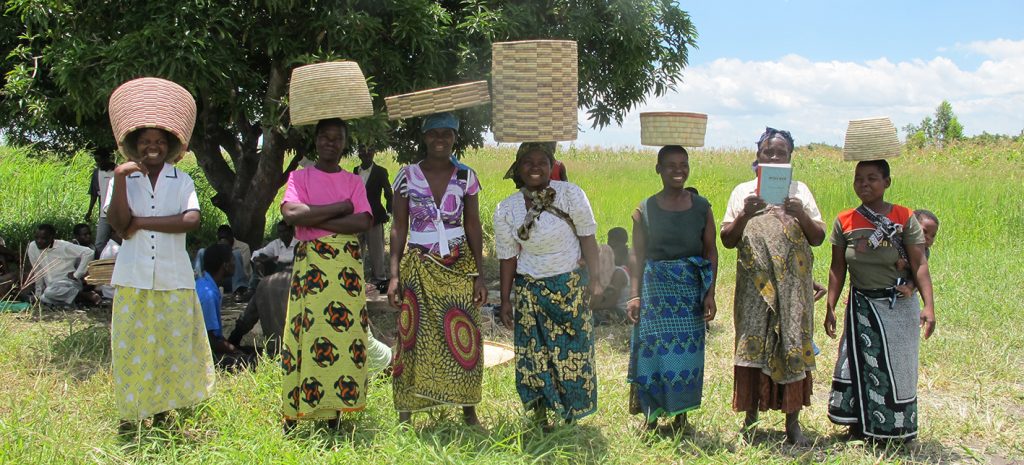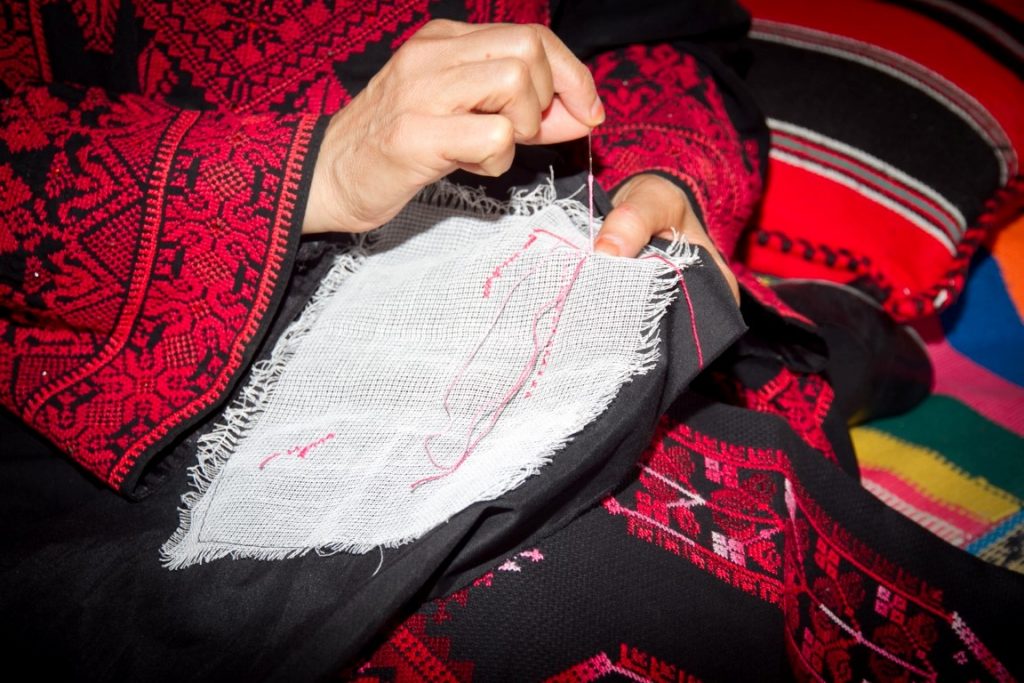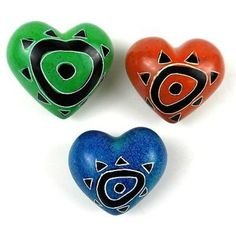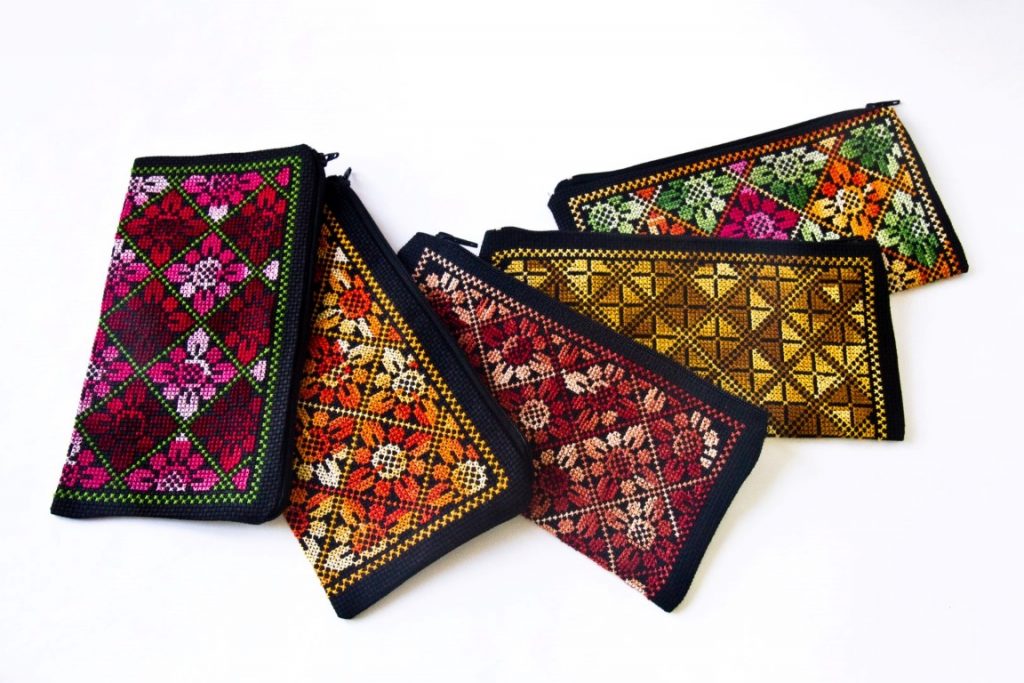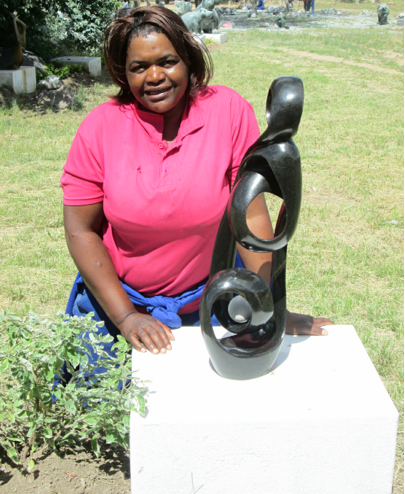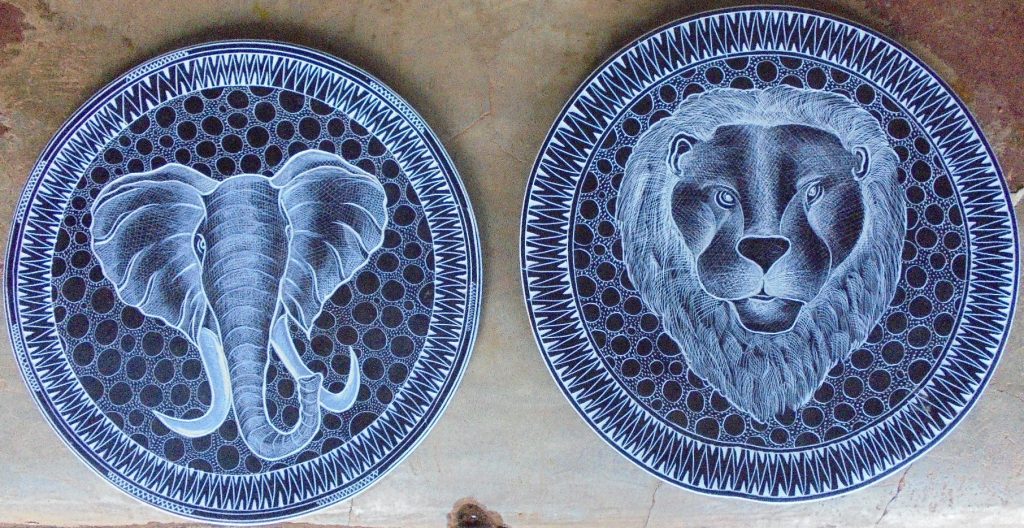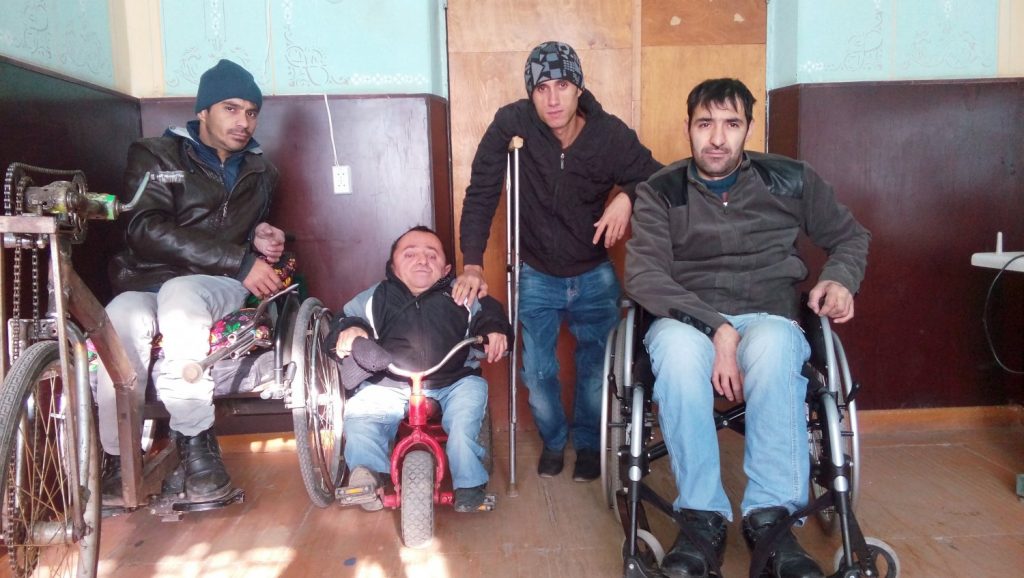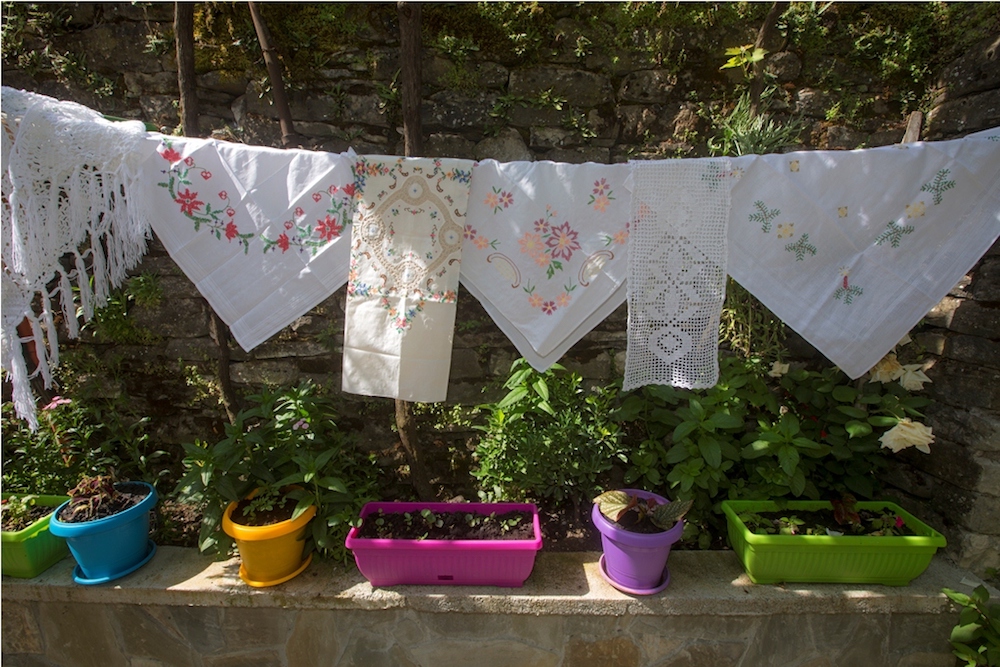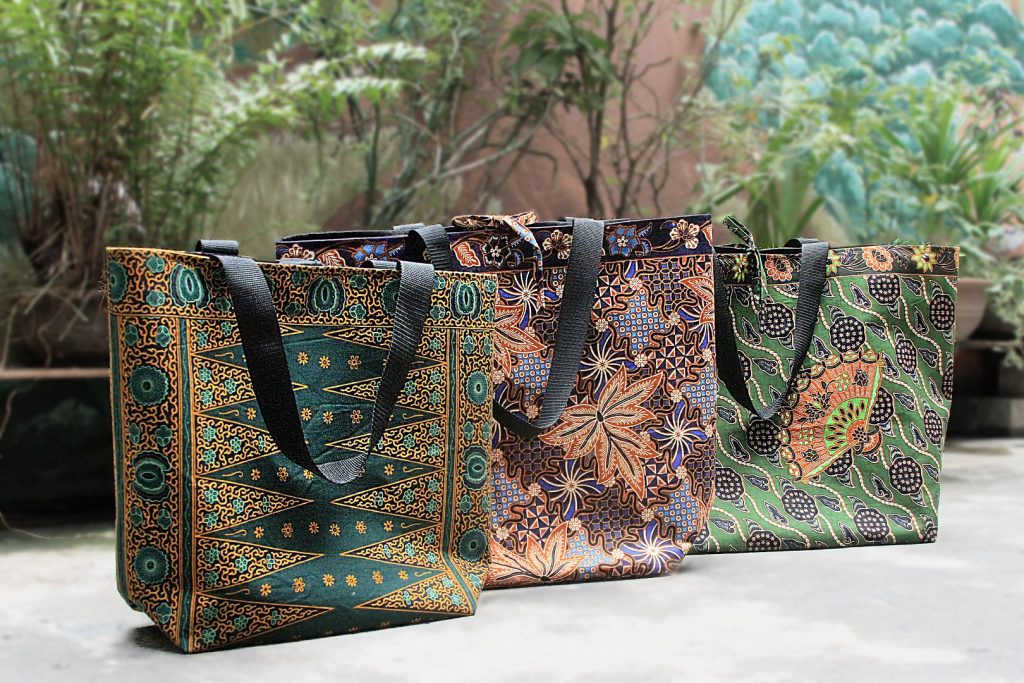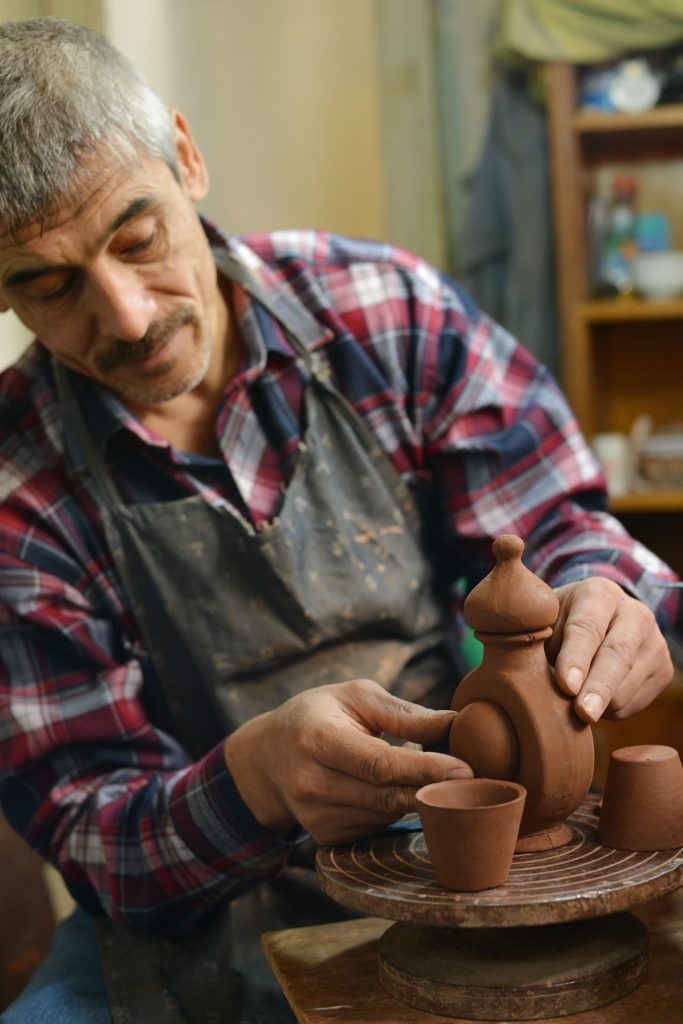ATA is proud to announce the 2017 Canvas Home™ Small Grants Program awardees. This year, the program sponsored 11 artisan groups from Albania, Israel, Kenya, Malaysia, Tajikistan, Uganda and Zimbabwe.
Please meet our Awardees:
Busiu Youth Forum, Uganda
Established in 2015, Busiu Youth Forum is an initiative of five young unemployed graduates who had an idea for a training center to produce their own goods and help others how to earn a living. Targeting the need to help women and youth who have dropped out of school in the town of Busiu, this organizations has trained 30 young people to make traditional bags, baskets, paintings, shoes and sculptures out of wood and local waste materials. The organization will use the grant money to buy sewing machines and raw materials in bulk to meet the needs of the clients. They also plan to hire more staff to train new members to become skilled and financially independent.
CHELMA ADVISORY INSTITUTE, Kenya
Founded in 2004, Chelma Advisory Institute is a non-profit organization that helps unemployed youth, school dropouts, adolescent mothers and women to acquire artisan skills. Their main objective for fifty artisans is to support sustainable development, self-reliance, and sustainability of local initiatives and enterprises. Crafts produced range from sculptures of human and animal figures, chessboards, pots, bowls, teacups and candle stands. The organization plans to use the grant money to invest in sewing machines and raw materials. The institute will conduct training to educate and enable women and unemployed youth to earn a livelihood.
DESERT EMBROIDERY, Israel
Desert Embroidery’s mission is to empower Bedouin women to improve their economic and social status, preserve traditional Bedouin embroidery, and empower youth through education and leadership training for community and social change. Established in 1996, Desert Embroidery preserves Bedouin hand embroidery by incorporating traditional patterns into traditional and contemporary products. Fifty women artisans are involved in cross-stitch designs based on traditional patterns used in Bedouin women’s dresses. The patterns are inspired by the desert environment, agriculture, and social structure. The crafts are sold at the Desert Embroidery store in Lamia Israel, a cooperative and a fair trade store. They intend to invest their grant in additional sewing machines, wool and fabric for raw material.
Girl Child Empowerment, Zimbabwe
Girl Child Empowerment of Zimbabwe (GCEZIM), a community organization established in 2015 to respond to a food crisis and a poor economy, which particularly affected women and youth with disabilities, and school dropouts.
Presently involving 60 women and 15 youth, GCEZIM’s artisans create sculptures of Zimbabwean birds, lions and elephants out of soapstone.
GCEZIM seeks to improve their marketing through training and invest their grant money in raw materials and tools such as gloves, helmets and shovels. These actions will enable entrepreneurs to expand their product range to meet customer demand. The project aims to create at least 200 sustainable jobs for women and young girls and develop their ability to sell their wares globally while fighting poverty in their communities.
Hands of Hope Artisans Carver Self Help Group, Kenya
HANDS OF HOPE ARTISAN CARVERS SELF HELP GROUP is a registered charity founded in 2006 as a response to the rising unemployment. It aims to improve lives, raise community living standards, health care and education. Located in the rural town of Tabaka, home to the largest soapstone deposits in the world, the project aims to foster disadvantaged artisans to produce and market Kisil soapstone carvings, and jewelry. Hands of Hope Artisans plan to use the grant money to invest in marketing and craft materials. They hope to advertise their products to local and international markets through an improved website to increase sales, generate income, create and empower disadvantaged artisans.
Maayuboni Tavono, Tajikistan
Maayuboni Tavono meaning “mighty disabled people” was established in 2013 by five friends to improve the quality of life of disabled people in Tajikistan. They aim to achieve that goal by training them to produce handcrafts and provide employment opportunities. Currently, there are six full time women engaged in the production wooden dishes, bowls, and chests. The organization plans to expand production by training five male staff members to become skilled artisans. The grant will be used to buy fabric and thread as well as tools such as chisels, knives and sewing machines. They hope to develop handcraft skills sufficient to provide sustainable income to people with disabilities that will help them integrate into society as economically independent citizens.
People of the Sun, Malawi
People of the Sun (PS) started its branch of Mango Club with just three weavers in late 2012 to revitalize basketry as a craft that was only practiced by marginalized older men. This was done through innovative design and younger people have started to weave. Older women have joined as well. Currently the group consists of 45 skilled palm leaf weavers working mainly at homes in a rural village in southern Malawi. Their products use traditional basket weaving techniques and their collection has recently grown to include home accessories and furniture.
Baskets are made with waste or local natural materials. PS has developed a value chain that generates social benefits to impoverished local artisans, while offering innovative products to the market and keeping indigenous craft traditions alive. The artisans depend on natural sunlight to work as they lack electricity. They plan to invest money from the grant in purchasing solar lamps so they can work late at night. Further, the grant money will be used in procuring knives for each artisan, buying raw materials like palm leaves and hiring trucks for transport of raw materials and finished products.
Pro Permet, Albania
Albania’s Pro Permet Consortium is a non-governmental organization founded in August 2011 in the District of Permet in southern Albania. The organization’s mission is to enhance the economy of the area, build the capacities of entrepreneurs, and increase the quality of traditional local products.
The Pro Permet Consortium supports artisans in sewing, knitting, and embroidery and employs over forty women in the production of traditional crafts. Products include home furnishings, such as tablecloths, bedspreads, clothing and accessories. The Canvas small grant will allow the groups to invest in materials, create new handicrafts, maintain high quality, employ and train more artisans in embroidery skills and entrepreneurship.
St. Bruno Doll Making Group, Uganda
Established in 2005, St. Bruno Doll making group is located in a place that harbors HIV/AIDS and war refugees from northern Uganda. The fifteen women artisans make dolls, bags, Africa-themed shirts, placemats and beaded items that are sold by craft shops in Kampala city to tourists and locals. The grant will be used to buy sewing machines to increase production and to train unemployed artisans in creating high quality products. It will also contribute toward buying raw materials, and train more women, providing start-up kits for each of them.
Tanma Federation, Burma
Tanma, meaning strong in Burmese, is a fair trade cooperative whose members are refugee women from five communities. They create handcrafts to achieve economic independence and self-empowerment. Established in 2010, Tanma’s mission is to build solidarity among women and promote Burmese cultural heritage through handcrafts. The artisans sew products like hand-painted batik tote bags, placemats, notebooks, clutches and wallets. Artisans use locally sourced raw materials for spa products like coconut oil and soy wax candles. Tanma intends to use grant money for raw materials, invest in a spinning wheel and design a website to market their products.
Union of Craftsmen of Tajikistan, Tajikistan
The Union of Craftsmen of Tajikistan (UCT), established in 2012, brings together artisans and organizations to develop the crafts sector in Tajikistan. UTC represents 143 members, mainly individual producers of crafts from across Tajikistan. The Union is the main link between Tajik artisans and international traders and provides artisans with professional assistance through training and quality control.
While they are talented, Tajik artisans lack raw materials and appropriate technology to produce quality crafts. To protect and develop the age-old traditional ceramic making that is declining due to lack of raw materials, UCT plans to use the grant money to produce materials for clay and glass crafts.

